10th DEC 1902 SIR RONALD ROSS (13th MAY 1857-16thSEP 1932)
Ronald Ross
From Wikipedia, the free encyclopedia
For other people named Ronald Ross, see Ronald Ross (disambiguation).
| Sir Ronald Ross | |
|---|---|
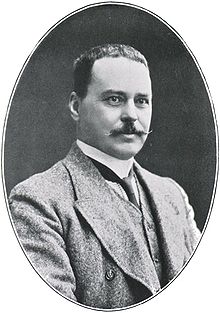 | |
| Born | 13 May 1857 Almora, North-Western Provinces,British India |
| Died | 16 September 1932 (aged 75) London, England |
| Resting place | Putney Vale Cemetery 51.438408°N 0.239821°W |
| Nationality | British |
| Fields | Medicine |
| Institutions | Presidency General Hospital,Calcutta Liverpool School of Tropical Medicine King's College Hospital British War Office Ministry of Pensions and National Insurance Ross Institute and Hospital for Tropical Diseases |
| Alma mater | St Bartholomew's Hospital Medical College Society of Apothecaries |
| Known for | Discovering that the malariaparasite is transmitted by mosquitoes |
| Notable awards |
|
| Spouse | Rosa Bessie Bloxam (m. 1889) |
| Children | 2 sons, 2 daughters[citation needed] |
Sir Ronald Ross, KCB, FRS[1][2] (13 May 1857 – 16 September 1932), was a British medical doctor who received the Nobel Prize for Physiology or Medicine in 1902 for his work on malaria, becoming the first BritishNobel laureate, and the first born outside of Europe. His discovery of the malarial parasite in the gastrointestinal tract of a mosquito led to the realisation that malaria was transmitted by mosquitoes, and laid the foundation for combating the disease. He was quite a polymath, writing a number of poems, published several novels, and composed songs. He was also an amateur artist and natural mathematician. He worked in theIndian Medical Service for 25 years. It was during his service that he made the groundbreaking medical discovery. After resigning from his service in India, he joined the faculty of Liverpool School of Tropical Medicine, and continued as Professor and Chair of Tropical Medicine of the institute for 10 years. In 1926 he became Director-in-Chief of the Ross Institute and Hospital for Tropical Diseases, which was established in honour of his works. He remained there until his death.[3][4]
Contents
[hide]Early life and education[edit]
Ronald Ross was born in Almora in present day Uttarakhand, India, the eldest of ten children of Sir Campbell Claye Grant Ross, General in the British Indian Army, and Matilda Charlotte Elderton. At age eight he was sent to England to live with his aunt and uncle on the Isle of Wight. He attended Primary schools at Ryde, and for secondary education he was sent to a boarding school at Springhill, near Southampton, in 1869. From his early childhood he developed passion for poetry, music, literature and mathematics. At fourteen years of age he won a prize for mathematics, a book titled Orbs of Heaven which sparked his interest in mathematics. At sixteen he secured first position in the Oxford and Cambridge local examination in drawing. Although he wanted to become a writer, his father arranged enrollment at St Bartholomew's Hospital Medical College in London, in 1874. Not fully committed, he spent most of his time composing music, and writing poems and plays. He left in 1880. In 1879 he had passed the examinations for the Royal College of Surgeons of England, and he worked as a ship's surgeon on a transatlantic steamship while studying for the licenciate of the Society of Apothecaries.[5] He qualified on second attempt in 1881, and after a four-month training at Army Medical School, he entered Indian Medical Service in 1881.[4] Between June 1888 and May 1889 he took study leave to obtain the Diploma in Public Health from the Royal College of Physicians and Royal College of Surgeons, and took a course in bacteriology under Professor E. E. Klein.[3]
Career[edit]
India[edit]
Ronald Ross embarked for India on 22 September 1881 on the troopship Jumma. Between 1881 and 1894 he was variously posted in Madras, Burma, Baluchistan (now in Pakistan), Andaman Islands, Bangalore, andSecunderabad. In 1883, he was posted as the Acting Garrison Surgeon at Bangalore during which he noticed the possibility of controlling mosquitoes by limiting their access to water. In March 1894 he had his home leave and went to London with his family. On 10 April 1894 he met Sir Patrick Manson for the first time. Manson who became Ross's mentor, introduced him to the real problems in malaria research. Manson always had a firm belief that India was the best place for the study. Ross returned to India on P&O Ferries' Ballaarat on 20 March 1895 and landed in Secunderabad on 24 April.[6] Even before his luggage was cleared in the custom office, he went straight for Bombay Civil Hospital, looking for malarial patients and started making blood films.
Discovery of malaria vector[edit]
Ross made his first important step in May 1895 when he observed the early stages of malarial parasite inside a mosquito stomach. However, his enthusiasm was interrupted as he was deployed to Bangalore to investigate an outbreak of cholera. Bangalore had no regular cases of malaria. He confided to Manson stating, "I am thrown out of employment and have 'no work to do'." But in April he had a chance to visit Sigur Ghat near the hill station ofOoty, where he noticed a mosquito on the wall in a peculiar posture, and for this he called it "dappled-winged" mosquito, not knowing the species. In May 1896, he was given a short leave that enabled him to visit a malaria-endemic region around Ooty. In spite of his daily quinine prophylaxis, he was down with severe malaria three days after his arrival. In June he was transferred to Secunderabad. After two years of research failure, in July 1897, he managed to culture 20 adult “brown” mosquitoes from collected larvae. He successfully infected the mosquitoes from a patient named Husein Khan for a price of 8 annas (one anna per blood-fed mosquito!). After blood-feeding, he dissected the mosquito and found an "almost perfectly circular" cell from the gut, which was certainly not of the mosquito. (This discovery was published in 18 December 1897 issue of British Medical Journal.)[7][8]On 20 August he confirmed the presence of the malarial parasite inside the gut of mosquito, which he originally identified as "dappled-wings" (which turned out to be species of the genus Anopheles). The next day, on 21 August, he confirmed the growth of the parasite in the mosquito. In the evening he composed the following poem for his discovery (originally unfinished, sent to his wife on 22 August, and completed a few days later):[9][10]
Discovery of malaria transmission[edit]
In September 1897, Ross was transferred to Bombay, from where he was subsequently sent to a malaria-free Kherwara in Rajputana (now Rajasthan). Frustrated of lack of work he threatened to resign from service as he felt that it was a death blow to his pursuit. It was only on the representation of Patrick Manson, that the government arranged for his continued service in Calcutta on a "special duty".[3] On 17 February 1898 he arrived in Calcutta (now Kolkata), to work in the Presidency General Hospital.[11] He immediately carried out research in malaria and kala azar, for which he was assigned. He was given the use of Surgeon-Lieutenant-General Cunningham’s laboratory for his research. He had no success with malarial patients because they were always immediately given medication. He built a bungalow with a laboratory at Mahanad village, where he would stay from time to time to collect mosquitoes in and around the village. He employed Mahomed (or Muhammed) Bux, Purboona (who deserted him after the first payday), and Kishori Mohan Bandyopadhyay as laboratory assistants. As Calcutta was not a malarious place, Manson persuaded him to use birds, as being used by other scientists such as Vasily Danilewsky in Russia and William George MacCallum in America. Ross complied but with a complaint that he "did not need to be in India to study bird malaria". By March he began to see results on bird parasites, very closely related to the human malarial parasites.[12] Using more convenient model of birds, by July 1898 he established the importance of mosquitoes as intermediate hosts in avian malaria. On 4 July he discovered that the salivary gland was the storage sites of malarial parasites in the mosquito. By 8 July he was convinced that tha parasites are released from the salivary gland during biting. He later demonstrated the transmission of malarial parasite from mosquitoes (in this case Culex species) to healthy birds from an infected one, thus, establishing the complete life cycle of malarial parasite.[13][14][15][16][17][18]
In September 1898 he went to southern Assam in (northeast India) to study an epidemic of kala azar. He was invited to work there by Dr Graham Col Ville Ramsay, the second Medical Officer of the Labac Tea Estate Hospital. (His microscope and medicals tools are still preserved, and his sketches of mosquitoes are still on display at the hospital.)[19] However, he utterly failed as he believed that the kala azar parasite (Leishmania donovani, the very scientific name he later gave in 1903) was transmitted by a mosquito, which he refers to as Anopheles rossi. (It is now known that kala azar is transmitted by sandflies.)
Ronald Ross Memorial, Kolkata[edit]
A small memorial on the walls of SSKM Hospital commemorates Ross' discovery. The memorial was unveiled by Ross himself, in the presence of Lord Lytton, on 7 January 1927.[20]
England[edit]
In 1899, Ross resigned from Indian Medical Service and went to England to join the faculty of the Liverpool School of Tropical Medicine as lecturer. He continued to work on prevention of malaria in different parts of the world, including West Africa, the Suez Canal zone,[21] Greece, Mauritius, Cyprus, and in the areas affected by the First World War. He also initiated organisations, which proved to be well established, for fighting malaria in India andSri Lanka. He was appointed as Professor and Chair of Tropical Medicine of the Liverpool School of Tropical Medicine in 1902, which he held up to 1912. In 1912 he was appointed Physician for Tropical Diseases at King's College Hospital in London, and simultaneously hold the Chair of Tropical Sanitation in Liverpool. He remained in these posts until 1917 when he became (honorary) Consultant in Malariology in British War Office. Between 1918 ans 1926 he worked as Consultant in Malaria in the Ministry of Pensions and National Insurance.
Ross developed mathematical models for the study of malaria epidemiology, which he initiated in his report on Mauritius in 1908. He elaborated the concept in his book The Prevention of malaria in 1910[22] (2nd edition in 1911) and further elaborated in a more generalised form in scientific papers published by the Royal Society in 1915 and 1916. These papers represented a profound mathematical interest which was not confined to epidemiology, but led him to make material contributions to both pure and applied mathematics.
Ross Institute and Hospital for Tropical Diseases[edit]
The Ross Institute and Hospital for Tropical Diseases was founded in 1926 and established at Bath House, a grand house with keeper's lodge and large grounds adjacent to Tibbet's Corner at Putney Heath. The hospital was opened by the then Prince of Wales, the future King Edward VIII.[23] Ross assumed the post of Director-in-Chief until his death.[5] The institute was later incorporated into the London School of Hygiene & Tropical Medicine in Keppel Street. Bath House was later demolished and mansion flats built on the property. In memory of its history and owner the block was named Ross Court. Within the grounds an older dwelling, Ross Cottage, remains.
Nobel Prize controversy[edit]
Main article: Nobel Prize controversies
Ronald Ross was awarded a Nobel Prize for his discovery of the life cycle of malarial parasite, although he considered his epidemiological mathematics to be a much more valuable contribution.[4] He did not build his concept of malarial transmission in humans, but in birds,[2] nor did he identify the exact species of mosquitoes (being not a zoologist, Ross simply described as "grey mosquito with dappled wings"). In 1897, an Italian physician and zoologist Giovanni Battista Grassi, along with his colleagues, had established the developmental stages of malaria parasites in anopheline mosquitoes; and they described the complete life cycles of P. falciparum, P. vivax andP. malariae the following year.[24] When the 1902 Nobel Prize for Physiology or Medicine was considered, the Nobel Committee initially intended the prize to be shared between Ross and Grassi. Then Ross initiated a defamatory campaign accusing Grassi of deliberate fraud, calling him "a mountebank, a cheap crook, a parasite who survived on the ideas of others." Grassi responded with equally strong polemic.[4] The weight of favour ultimately fell on Ross, largely due to the influences of Robert Koch, the appointed "neutral arbitrator" in the committee; as reported, "Koch threw the full weight of his considerable authority in insisting that Grassi did not deserve the honor".[25] Ross was the first to show that malarial parasite was transmitted by the bite of infected mosquitoes, in his case the avian Plasmodium relictum, which is a harmless parasite. However, Grassi's work was more directly relevant to human health as he demonstrated that human malarial parasites were transmitted only by female Anopheles. Indeed, it was Grassi who both correctly identified the mosquito species as Anopheles claviger and in 1898 established the complete life cycle of P. falciparum, the first human malarial parasite for which this had been done.[26]
Personal life and death[edit]
Ronald Ross was noted to be eccentric and egocentric, described as an "impulsive man". His professional life appeared to be in constant feud with his students, colleagues and fellow scientists.[27] His personal vendetta with G.B. Grassi became a legendary tale in science. He was openly envious of his mentor Patrick Manson's affluence from private practices. This was largely been due to his own ineptitude to compete with other physicians. HisMemories of Sir Patrick Manson (1930) was a direct attempt to belittle Manson's influences on his works on malaria.[6] He hardly had good ties with the administration of Liverpool School of Tropical Medicine, constantly whining of being underpaid. He resigned twice, and was eventually discharged without any pension.[28]
Ross was frequently embittered by lack of government support (what he called "administrative barbarism")[4] for scientists in medical research. In 1928 he advertised his papers for sale in Science Progress, with a statement that the money was for financial support of his wife and family. Lady Houston bought them for £2000, and offered them to the British Museum, which turned her down for various reasons. The papers are now preserved by theLondon School of Hygiene and Tropical Medicine[3] and the Royal College of Physicians and Surgeons of Glasgow.[29]
Ross married Rosa Bessie Bloxam in 1889. They had two daughters, Dorothy (1891–1947) and Sylvia (1893–1925), and two sons, Ronald Campbell (1895–1914) and Charles Claye (1901–1966). His wife died in 1931. Ronald and Sylvia pre-deceased him too: Ronald was killed at the Battle of Le Cateau on 26 August 1914.[30] Ross died at the hospital of his namesake after a long illness and asthma attack. He was buried at the nearbyPutney Vale Cemetery, next to his wife.[31][32][33]
Books[edit]
- Report on Cholera, General Sanitation, and the Sanitary Department and Regulations, in the C. & M. Station of Bangalore (1896)
- Report on the Cultivation of Proteosoma Labbé, in Grey Mosquitoes (1898). Digitised version available from National Library of Scotland.
- Report on the Nature of Kala-azar (1899). Digitised version available from National Library of Scotland.
- Malarial Fever: Its Cause, Prevention and Treatment; Containing Full Details for the Use of Travellers, Sportsmen, Soldiers, and Residents in Malarious Places (1902)
- First Progress Report of the Campaign Against Mosquitoes in Sierra Leone (with Charles Wilberforce Daniels) (1902)
- Notes on the Parasites of Mosquitoes Found in India Between 1895 and 1899
- Hygiene for Indian Scholars
- Note on the Bodies Recently Described by Leishman and Donovan (1903)
- Further Notes on Leishman's Bodies (1903)
- Report on Malaria at Ismailia and Suez (1903)
- Leishmania Donovani Found in Kala-azar (1904)
- Researches on Malaria (1905)
- Note on a Flagellate Parasite Found in Culex Fatigans (1906)
- Malaria in Greece (1909)
- Missionaries and the Campaign Against Malaria (1910)
- A Case of Sleeping Sickness Studied by Precise Enumerative Methods: Regular Periodical Increase of the Parasites Disclosed (with David Thomson) (1910)
- Discussion on the Treatment of Malaria (1918)
- Mosquitoes and Malaria in Britain (1918)
- Suggestions for the Care of Malaria Patients (1919)
- Observations on malaria (1919)
- Memoirs, with a Full Account of the Great Malaria Problem and Its Solution (1923)
- Malaria-control in Ceylon Plantations (1926)
- Solid Space-algebra: The Systems of Hamilton and Grassmann Combined (1929)
- A Summary of Facts Regarding Malaria Suitable for Public Instruction (with Malcolm Watson) (1930)
- Memories of Sir Patrick Manson (1930)
- The solution of equations by iteration (with William Stott) (1930)
- A Priori Pathometry (with Hila Phobe Hudson) (1931)
- Mosquito Brigades and How to Organise Them ISBN 978-1-2905-5311-7
Literary works[edit]
Ross was a prolific writer. He habitually wrote poems on most of the important events in his life. His poetic works gained him wide acclaim and they reflect his medical service, travelogue, philosophical and scientific thoughts. Many of his poems are collected in hisSelected Poems (1928) and In Exile (1931). Some of his notable books are The Child of Ocean (1899 and 1932), The Revels of Orsera, The Spirit of Storm, Fables and Satires (1930), Lyra Modulatu (1931), and five mathematical works (1929–1931). He also compiled an extensive account The Prevention of Malaria in 1910 and another Studies on Malaria in 1928. He published his autobiography Memoirs, with a Full Account of the Great Malaria Problem and its Solution (547 pages long) in 1923. He carefully saved virtually everything about himself: correspondence, telegrams, newspaper cuttings, drafts of published and unpublished material, and all manner of ephemera.[4]
Awards and recognitions[edit]
Ronald Ross was awarded the Nobel Prize for Physiology or Medicine in 1902 "for his work on malaria, by which he has shown how it enters the organism and thereby has laid the foundation for successful research on this disease and methods of combating it".[34]
20 August is celebrated by London School of Hygiene & Tropical Medicine as World Mosquito Day to commemorate Ross' discovery in 1897.[35]
He was elected a Fellow of the Royal Society (FRS) in 1901 and of the Royal College of Surgeons in the same year. He was appointed Vice-President of the Royal Society from 1911 to 1913.[citation needed] In 1902 he was appointed a Companion of the Most Honourable Order of the Bath by King Edward VII. In 1911 he was promoted to the rank of Knight Commander of the same Order. He was also decorated with the title Officer of the Order of Leopold II of Belgium.
Ross received honorary membership of learned societies of most countries in Europe, and elsewhere. He got an honorary M.D. degree in Stockholm in 1910 at the centenary celebration of the Caroline Institute and his 1923 autobiography Memoirs was awarded that year's James Tait Black Memorial Prize. While his vivacity and single-minded search for truth caused friction with some people, he enjoyed a vast circle of friends in Europe, Asia and the United States who respected him for his personality as well as for his genius.
In India, Ross is remembered with great respect as a result of his work on malaria, the deadly epidemic which used to claim thousands of lives every year. There are roads named after him in many Indian towns and cities. InCalcutta the road linking Presidency General Hospital with Kidderpore Road has been renamed after him as Sir Ronald Ross Sarani. Earlier this road was known as Hospital Road. In his memory, the regional infectious disease hospital at Hyderabad was named Sir Ronald Ross Institute of Tropical and Communicable Diseases. The building where he worked and actually discovered the malarial parasite, located in Secunderabad near the Begumpet Airport, is a declared a heritage site and the road leading up to the building is named Sir Ronald Ross Road.
In Ludhiana, Christian Medical College has named its hostel as "Ross Hostel". The young medics often refer to themselves as "Rossians".
The University of Surrey, UK, has named a road after him in its Manor Park Residences.[36]
Ronald Ross primary school near Wimbledon Common is named after him. The school's coat of arms includes a mosquito in one quarter.[37]
Sir Ronald Ross Institute of Parasitology was established in memory of Ronald Ross in Hyderabad, under Osmania University.[38]
In 2010 the University of Liverpool has named its new biological science building "The Ronald Ross Building" in his honour. His grandson David Ross inaugurated it. The building is home to the university's facility for the Institute of Infection and Global Health.[39]
See also[edit]
Search Results
Special Story on Nobel Winner Sir Ronald Ross ... - YouTube
https://www.youtube.com/watch?v=lRm0OH4i46w
Aug 21, 2015 - Uploaded by V6 News Telugu
Sir Ronald Ross was a British medical doctor who received theNobel Prize for Physiology or Medicine in ...Ronald Ross and the transmission of malaria ... - YouTube
https://www.youtube.com/watch?v=fWHk5spzZTs
Sep 25, 2015 - Uploaded by Zaida
Ross and the discovery that mosquitoes transmit malariaparasites . , . . . . Sir ronald ross was born in ...Sir Ronald Ross | First British Nobel Laureate ... - YouTube
https://www.youtube.com/watch?v=GeQJ5qoFiGk
6 days ago - Uploaded by Edupedia World
Sir Ronald Ross | First British Nobel Laureate | Ronald Ross ...Don't like this video? ... FRS, was a ...Sir Ronald Ross Grandson opens Ronald Ross Building ...
https://www.youtube.com/watch?v=6B0EoGccl1o
Oct 9, 2012 - Uploaded by Tom Solomon
Sir Ronald Ross, a University of Liverpool scientist, was awarded the Nobel Prize for discovering that ...Great people, Nobel prize winners about God Part 25 ...
https://www.youtube.com/watch?v=zV8SZlhFZaE
Jan 25, 2013 - Uploaded by Леонид Радченко
20 August 1897, sir Ronald Ross made a remarkable discovery:malaria is transmitted to people by ...The Cure - Medical Pioneer: Ronald Ross - YouTube
https://www.youtube.com/watch?v=FhstwxLNahY
Jun 17, 2014 - Uploaded by Al Jazeera English
Subscribe to our channel http://bit.ly/AJSubscribe How one man's discovery helped fight the world's ...Ross LifeScience Pvt. Ltd. Laboratory Setup - YouTube
https://www.youtube.com/watch?v=6ebAysmphfs
Jan 19, 2012 - Uploaded by RossLifeScience
The name also is a tribute to the Nobel Laureate Sir. RonaldRoss who discovered the transmission of ...UK government sets up £1bn fund to fight malaria - YouTube
https://www.youtube.com/watch?v=ksk0rcsZ3Fg
Nov 21, 2015 - Uploaded by Gone Viral
It is named after Sir Ronald Ross who became Britain's firstNobel Prize winner in 1902 for his discovery ...Ronald Ross Quotes - YouTube
https://www.youtube.com/watch?v=DNrclVe69xE
Mar 24, 2012 - Uploaded by quotetank
Who is Ronald Ross? A British doctor who received the Nobel Prize for Physiology or Medicine in 1902 for ...Nobel Prize Winners in Physiology or Medicine: History ...
www.bloomberg.com/.../nobel-prize-winners-in-ph...
Oct 3, 2011
Nobel Prize Winners in Physiology or Medicine: History ... Don't Miss Out — Follow Bloomberg On .... 2001 ...
Stay up to date on results for sir donald ross got nobel prize for malaria.
Create alert
Showing results for sir donald ross got nobel prize for malaria
Search instead for sir donald ross got noble prize for malaria
Search instead for sir donald ross got noble prize for malaria
Search Results
Ronald Ross - Wikipedia, the free encyclopedia
https://en.wikipedia.org/wiki/Ronald_Ross
Jump to Awards and recognitions - Ronald Ross was awarded the Nobel Prize for Physiology or Medicine in 1902 "Sir Ronald Ross | British doctor | Britannica.com
www.britannica.com/biography/Ronald-Ross
Oct 28, 2014 - Sir Ronald Ross, (born May 13, 1857, Almora, India—died Sept. 16, 1932, Putney Heath, London, Eng.), British doctor who received the Nobel Prize for Physiology or Medicine in 1902 for his work on malaria.Malaria - Page 43 - Google Books Result
https://books.google.co.in/books?isbn=1438101562
Bernard Marcus - 2009
He was awarded the Nobel Prize in medicine in 1907. Sir ... The third link in the chain of discovery of malaria was Sir Donald Ross (1857–1932), another British ...Ronald Ross - Malaria Site
www.malariasite.com/ronald-ross/
Feb 25, 2015 - Ross was the first of ten children of Sir Campbell Claye Grant Ross, a Scottish officer in the ... When he was 14 years old, he won a prize for mathematics. .... In between he found time to write another bad novel, invented a new .... and then claim it as their own,” he warned Ross in one letter, “see if they don't.Blastocystis: Pathogen or Passenger?: An Evaluation of 101 ...
https://books.google.co.in/books?isbn=3642327389
Heinz Mehlhorn, Kevin S. W. Tan, Hisao Yoshikawa - 2012 - Medical
... malaria stages within erythrocytes (Nobel Prize in 1907) 1881 AD Leuckart ... the English Army doctor Sir Donald Ross (1857–1932) proved that avian malaria1857 Sir Ronald Ross 'Discovered Cause of Malaria' | Dr ...
https://www.linkedin.com/.../20140518141436-31515886-1857-sir-rona...
May 18, 2014 - Sir Ronald Ross (1857-1932) English PhysicianProved Mosquito's were ... He received many honours including the Nobel Prize in 1902, and was given Honorary ... Don't create an investment committee at odds with a giving ...'Wasn't it Exciting!': A Compilation of the Work of A. ...
https://books.google.co.in/books?isbn=1860162061
Adair Stuart Mason - 2004 - Cartography
No one knew how the parasite got into human blood. The final link that was vital to the control of endemic malaria came with the ... The man who finally proved that the mosquito was the sole transmitter of malaria was Dr. Donald Ross. His work was rewarded by the Nobel prize for medicine in 1902, only the second year of ...Sandwalk: Nobel Laureate: Ronald Ross
sandwalk.blogspot.com/2007/07/nobel-laureate-ronald-ross.html
Jul 25, 2007 - Ronald Ross (1857 - 1932) received the Nobel Prize in Physiology or Medicine ... You can read a detailed description of Ross' work on The Malaria Site [SirRonald Ross]. .... You should also know that they don't speak for me.Encyclopedia of Biology - Page 299 - Google Books Result
https://books.google.co.in/books?isbn=1438109997
Don Rittner, Timothy Lee McCabe - 2009 - Biology
Don Rittner, Timothy Lee McCabe. rough ER 299 Service in 1881. Ross married Rosa Bessie Bloxam in 1889 and they had two sons and two daughters. ... direction of SirAlfred Jones and was sent to West Africa to continue his investigations. ... in addition toreceiving the Nobel Prize in 1902 for his work in malaria, and was ...Ronald Ross
www.nndb.com/people/339/000094057/
Executive summary: Discovered malaria parasite in mosquitoes. Scottish physician and bacteriologist Ronald Ross established the link between mosquitoes and malaria, and won the Nobel Prize in Medicine in 1902. ... Father: Sir Campbell Claye GrantRoss (British Army General) ... Do you know something we don't?Searches related to sir donald ross got nobel prize for malaria
Kharghar, Navi Mumbai, Maharashtra - From your Internet address - Use precise location

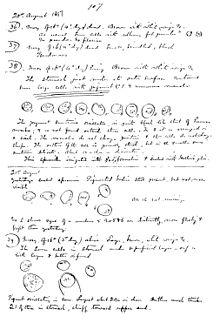


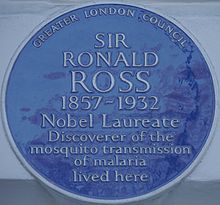
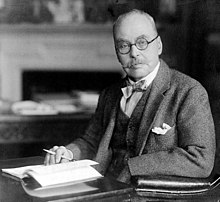


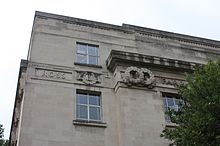
No comments:
Post a Comment